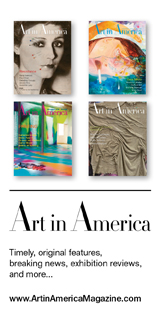The HfG Ulm
Ulm School of Design
Ulm
Germany
The Ulm School of Design is often referred to as the most influential postwar / post bauhaus German design institution.
Shutting down only 15 years after it opened in 1953, the school's legacy continues to influence the international design community.
From 1949, Inge Scholl, Otl Aicher, and Hans Werner Richter began planning a school of politics and arts in Ulm. Their contact with Max Bill redirected the focus of teaching toward design. John McCloy (the American High Commissioner responsible for Germany) the Norwegian European Aid Program, and the West German Finance Directorate all supported the project financially.
The HfG building was designed by Max Bill, most famously this design including the 'Ulmer Stool' for the interior spaces on campus. A collaboration with Hans Gugelot, the object has many practical uses including: a seat, a side table or a shelving element, as a transport container, serving tray or table attachment. Vitra now has the licence to produce authorised copies of the chair.
The campus reflected the teaching concept of the school, namely the integration of work and life in one place. With a focus on practical design students spend their first year in a foundation course then 3 years in one of five departments: Industrial Design, Visual Communication, Building, Information, and Film.
After years of debate on the direction of the school's curriculum and the politics within the greater region (Baden-Württemberg), the school's funding was completely withdrawn in 1968 forcing its closure later that year.
Today, however, the HfG Ulm Foundation (the owners of the building) have committed to a rejuvenation of the HfG.
In the near future (Fall 2011), design-affiliated companies (architects, agencies, artists, photographers), cultural and scientific institutions as well as service companies shall reanimate the HfG-premises with tenants from the student-, art-and cultural scene.
“A creative pool will arise through the settlement of young creatives and companies from various design-branches that exchange impulses reciprocally”, explains Dieter Boschmanaging director of the HfG Ulm Foundation.
While this renwel is long overdue, not everyone is happy with the plans. In a recent article in Bauhaus magazine Christina Tilmann questions if the new plans are exploiting the HfG's reputation to create a glorified 'design shop' rather than exploring the history of the school.
For more information on the 'Ulmer Model' of design we recommend The Ulm School of Design - A View Behind the Foreground (History of Art Design Styles )

Ulm stool by Max Bill, Hans Gugelot, Paul Hildinger

Stackable tableware TC 100 by Hans (Nick) Roericht

Student with works made of paper during class with Josef Albers, 1955























